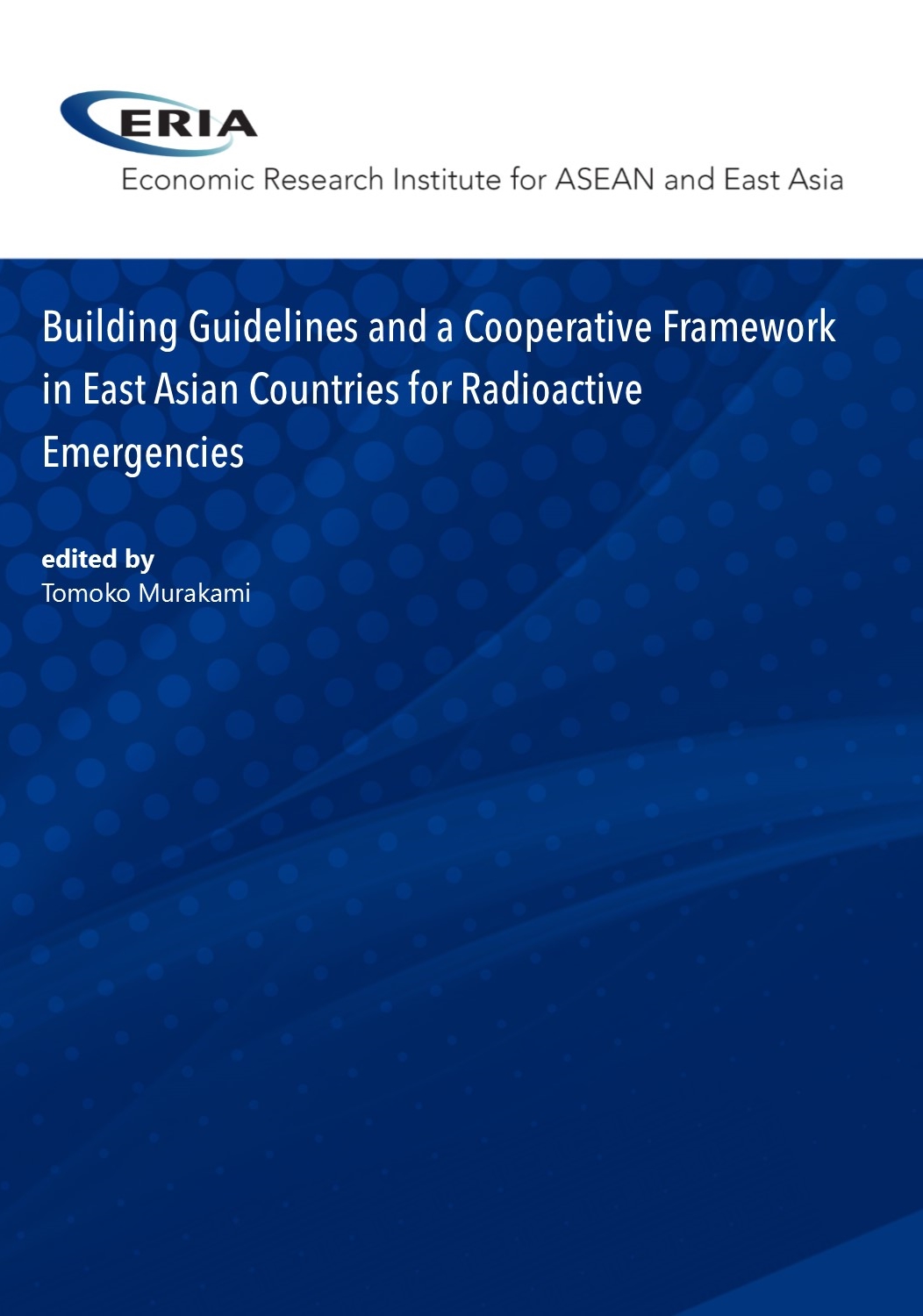Building Guidelines and a Cooperative Framework in East Asian Countries for Radioactive Emergencies

Date:
24 February 2016Category:
ASEAN, Energy, Regulation and GovernanceType:
Research Project ReportsTags:
Print Article:
Executive Summary
Main Argument
Several ASEAN member countries plan to introduce commercial nuclear reactors in the 2020s in order to meet their rapidly growing demand for energy. In the 1st Working Group meeting, the current development plan of nuclear energy, as well as the safety regulatory systems, emergency preparedness, and participation in international activities, was shared among ASEAN member countries. Taking into account the comments and recommendations from member countries in the 2nd Working Group meeting, together with the lessons learned from European countries, a draft outline of the guidelines for regional collaboration between East Asian countries in the case of a radioactive emergency was discussed. The major findings were as follows:
- All member countries have a common awareness that every country should play a role in regional cooperation on nuclear emergency preparedness and response, irrespective of the development status of commercial nuclear power generation.
- East Asian countries can learn practices and guidelines in European countries, especially Nordic countries, with regard to regional information-sharing and collaborating systems in the case of a radioactive emergency.
- It would be appropriate to make use of a relevant framework in East Asia, such as the ASEAN Network of Regulatory Bodies on Atomic Energy (ASEANTOM) concept, in order to achieve the most effective emergency preparedness and response.
Policy Implications
- A regional framework of close coordination in nuclear emergency preparedness and response would significantly improve the nuclear safety of East Asian countries.
- A reliable information and communication network, a shared database, and a joint working group for establishing recommendations on practical methods for emergency preparedness would provide benefits, such as systematic support to member countries considering the introduction of nuclear energy.
- Specific support measures may include technical assistance for establishing guidelines on emergency preparedness and response in East Asian countries, human resources development, and financing in related research and development (R&D) projects.
- Sharing the database on nuclear facilities and alert systems across East Asian countries is recommended in order to collect accurate information to protect public health and the environment of East Asian countries, including accident prognosis and dispersion.
Full Report
Contents
Chapter 1. Purpose of the Project
Chapter 2. Country Reviews in Asia
Chapter 3. Regional Collaborative Activities in European Countries
Chapter 4. Building an "East Asian Manual" and the Way Forward




